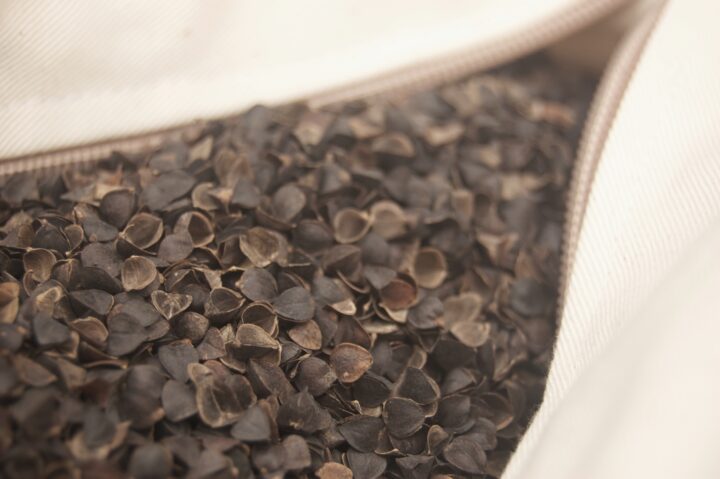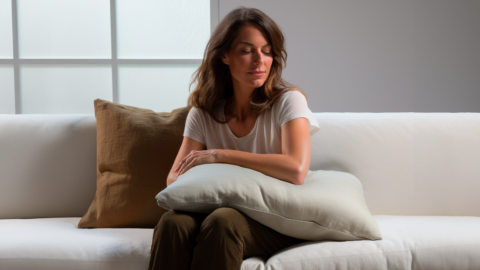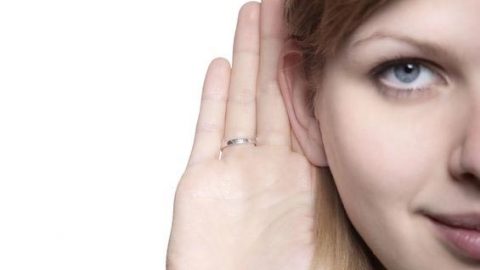
Anxiety disorders affect millions of people worldwide, often leading to sleep disturbances and increased stress levels. While treatments like therapy, meditation, and medication are effective, some individuals seek additional methods for relief. One option gaining attention is a weighted pillow for anxiety, designed to provide deep pressure stimulation (DPS)—a technique that applies gentle, even pressure to the body to promote relaxation. By engaging this sensory response, a weighted pillow for anxiety may help calm the nervous system and reduce stress.
But does a weighted pillow for anxiety truly work? Let’s examine the research behind DPS, its effects on stress and sleep, and how weighted pillows might contribute to anxiety relief.
What Is a Weighted Pillow?
A weighted pillow is a sleep or relaxation aid designed with added weight, typically using materials like:
- Microbeads or glass beads (similar to weighted blankets)
- Buckwheat hulls, a popular all-natural pillow filling
- Gel-infused or memory foam cores

The key mechanism behind weighted pillows is deep pressure stimulation (DPS), a tactile therapy that mimics the calming effects of a hug or firm touch. This technique is already used in occupational therapy for individuals with anxiety, autism spectrum disorder (ASD), and sensory processing disorders.
How Deep Pressure Stimulation (DPS) Affects Anxiety
1. Reduces Cortisol (Stress Hormone) Levels
Anxiety triggers the release of cortisol, the body’s primary stress hormone. Excess cortisol can lead to a heightened state of alertness, making it difficult to relax or fall asleep.
A study published in the Journal of Sleep Medicine & Disorders found that DPS, as applied through weighted blankets, significantly reduced cortisol levels while increasing serotonin and melatonin—both crucial for relaxation and sleep. (Source)
This suggests that a weighted pillow could have a similar effect by applying localized pressure to the head, neck, and shoulders.
2. Increases Serotonin and Melatonin for Better Sleep
People with anxiety often experience sleep disturbances, including difficulty falling and staying asleep. Serotonin, a neurotransmitter that regulates mood, plays a key role in relaxation and is a precursor to melatonin, the hormone responsible for sleep-wake cycles.
Research on DPS suggests that applying gentle, consistent pressure can stimulate serotonin production, leading to a natural increase in melatonin levels. (Source)
This means that using a weighted pillow at night could encourage deeper, more restful sleep, particularly for those with anxiety-related insomnia.
3. Activates the Parasympathetic Nervous System (Rest-and-Digest Mode)
Anxiety keeps the body in a heightened state of arousal, activating the sympathetic nervous system (fight-or-flight response). This leads to increased heart rate, shallow breathing, and muscle tension.
Weighted products have been found to activate the parasympathetic nervous system—the body’s natural “rest-and-digest” mode—by reducing physiological arousal. (Source)
This physiological shift helps lower heart rate and breathing rate, promoting a sense of calmness.
Can a Weighted Pillow Help with Anxiety?
Although most research on DPS has focused on weighted blankets, vests, and compression therapy, the same principles may apply to weighted pillows.
Who Might Benefit from a Weighted Pillow for Anxiety?
A weighted pillow could be particularly helpful for:
- Individuals with Generalized Anxiety Disorder (GAD): Helps promote relaxation through consistent pressure.
- People with Sleep Disorders: Encourages the production of melatonin and serotonin.
- Those with Sensory Processing Sensitivities: Provides a calming, grounding sensation without overwhelming stimulation.
- Anyone Experiencing High Stress Levels: Supports relaxation during high-stress periods, such as work deadlines or travel.
Choosing the Right Weighted Pillow for Anxiety
When selecting a weighted pillow, consider:
- Weight: A pillow should be heavy enough to provide noticeable pressure but not uncomfortable. Most weighted pillows range from 3 to 10 pounds.
- Material: Look for breathable, organic fabrics. Egyptian cotton twill is a good compromise between comfort, durability and sustainability.
- Adjustability: Some options, like buckwheat-filled pillows, allow for adjustable firmness and weight by adding or removing hulls.
Should You Try a Weighted Pillow?
A weighted pillow for anxiety may offer a natural, science-backed way to reduce stress, improve sleep, and promote relaxation. While more research is needed specifically on weighted pillows, the existing data on Deep Pressure Stimulation (DPS) strongly supports their potential benefits.
For those struggling with anxiety-related restlessness or sleep disturbances, incorporating a weighted pillow into a holistic stress management plan could be a simple yet effective solution. If you’re looking for a natural way to feel more grounded at night, give our weighted pillow a try and experience the difference for yourself.
References
• Ackerley, R., Badre, G., & Olausson, H. (2015). Positive effects of a weighted blanket on insomnia. Journal of Sleep Medicine & Disorders.
• Penn Medicine. (2022). Weighted blankets for anxiety and sleep: Do they really work? Penn Medicine Blog.
• Ekholm, B., & Öhman, A. (2020). Deep pressure stimulation and its effects on sleep quality: A randomized controlled study. PMC Public Health.



